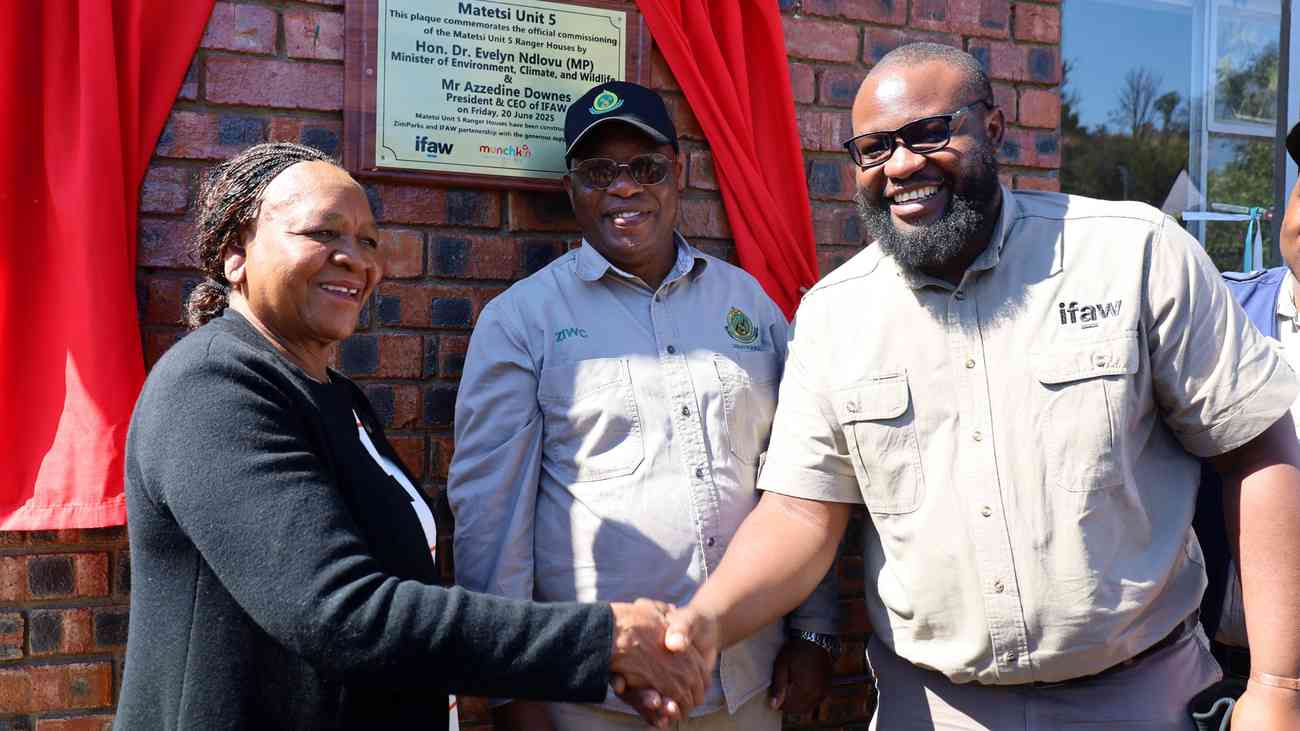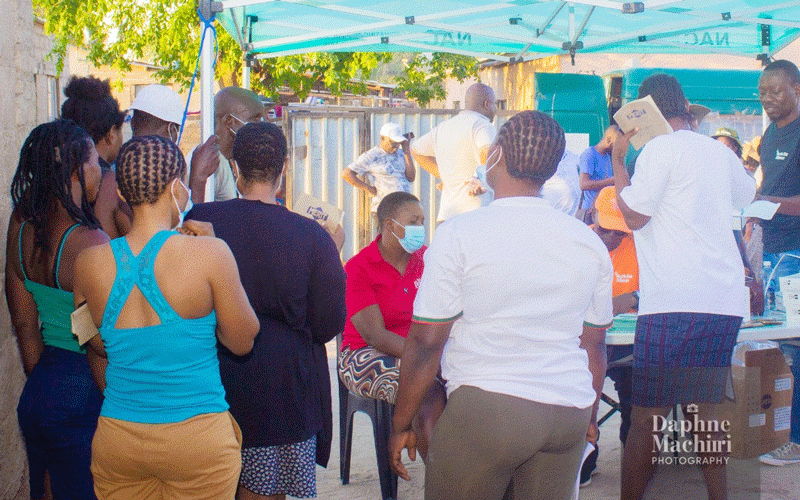
The Zimbabwean government, with International Federation for Animal Welfare (IFAW) and Zimbabwe Parks and Wildlife Management Authority (ZimParks), has commissioned two new ranger houses at Matetsi Unit 5, strengthening conservation efforts in a key wildlife area.
This region, which is part of IFAW’s Room to Roam priority landscapes, is a critical migratory route for elephants moving between Hwange National Park in Zimbabwe and Chobe National Park in Botswana, both part of the Kaza Transfrontier Conservation Area.
Built under the IFAW-ZimParks co-management agreement, the new ranger houses will accommodate eight rangers and provide comfortable, secure living conditions for those tasked with protecting the Matetsi Safari Area.
The handover ceremony, held at Matetsi Unit 5, was attended by government officials, conservationists, and community leaders.
In her remarks, Environment, Climate and Wildlife minister Evelyn Ndlovu, applauded IFAW and ZimParks for prioritising ranger welfare.
“By investing in ranger welfare, the two organisations are doing more than just improving living conditions for our esteemed rangers,” Ndlovu said.
“They are also enhancing our capacity to safeguard Zimbabwe’s treasured wildlife heritage and supporting the government’s broader efforts to promote nature-based tourism, which is key to both conservation and sustainable development.”
The ceremony also featured the handover of tents and uniforms.
To date, IFAW and ZimParks, with generous support from Munchkin, have invested more than US$1 million in Matetsi.
This funding has been used to strengthen law enforcement — including the purchase of two patrol vehicles — support community-based conservation initiatives and alternative livelihoods while improving the ecological function of the landscape.
“Matetsi is an important area for promoting elephant connectivity,” said Alleta Nyahuye, IFAW Zimbabwe director.
“This is why IFAW and ZimParks work so closely to address key conservation challenges in this landscape.
“Our vision is one of resilience—where a thriving wildlife population delivers lasting benefits to local communities.”
IFAW is a global non-profit whose objectives are to help animals and people thrive together.
It has experts and people working across seas and oceans in over 40 countries daily.









